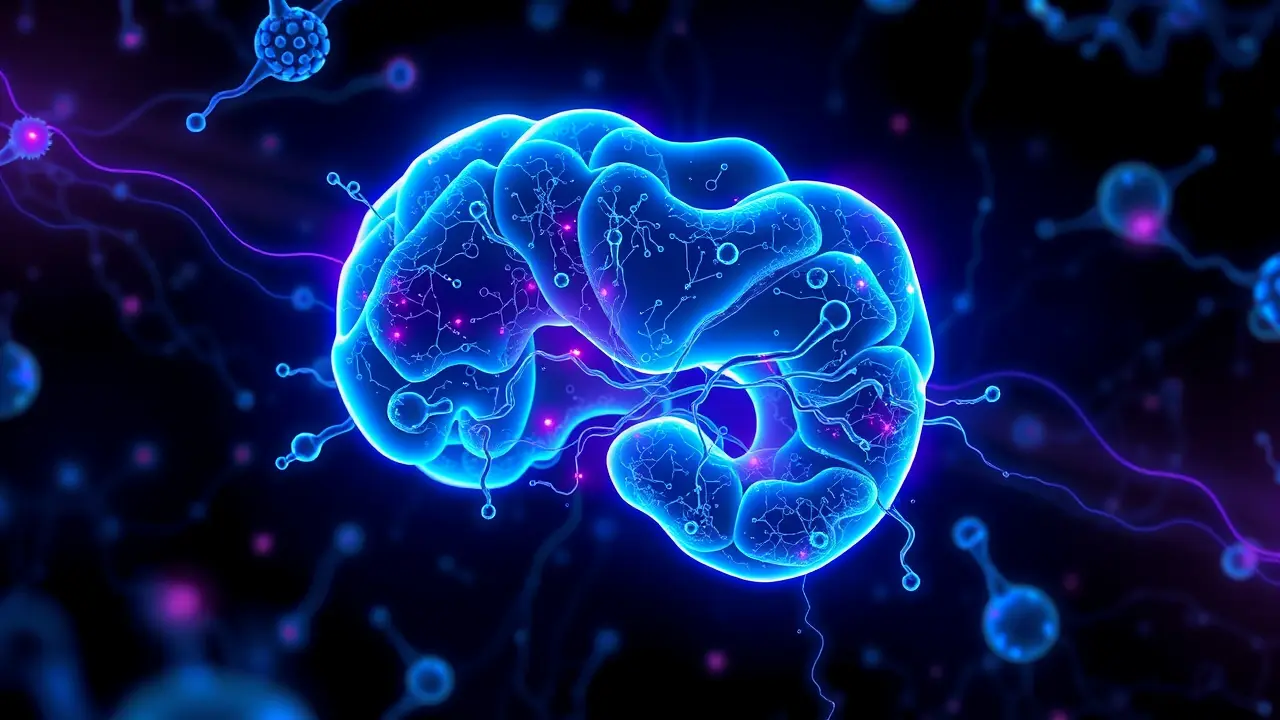
SciencebiologyMicrobiology
AI unravels the hidden communication of gut microbes
KE
Kevin White
4 hours ago7 min read1 comments
In a development that feels ripped from the pages of a near-future medical thriller, scientists are now deploying sophisticated artificial intelligence to finally crack the code of the human gut microbiome, an incredibly complex and vital ecosystem that has long resisted full comprehension. This isn't just about counting bacteria; it's about understanding their intricate chemical conversations, a constant, silent dialogue of molecular signals that profoundly influences everything from our metabolic health to our susceptibility to cancer.The breakthrough comes in the form of a specialized AI model known as VBayesMM, a Bayesian neural network designed to cut through the statistical noise that has plagued previous research. Traditional models often struggled to distinguish genuine biological interactions from mere random correlations, leading to a fog of conflicting data.VBayesMM, however, operates with a probabilistic sophistication that allows it to identify which microbial signals are truly linked in a cause-and-effect relationship, effectively separating the meaningful whispers from the background chatter. The real-world implications are staggering and are already being demonstrated in pioneering studies.In obesity research, for instance, VBayesMM has mapped previously unseen connections between specific bacterial metabolites and fat storage pathways, offering new, precise targets for interventions far beyond simplistic calorie counting. Similarly, in the enigmatic realm of sleep disorders, the AI has helped correlate the production of certain neuroactive compounds by gut bacteria with sleep quality, opening up a whole new frontier in sleep medicine that moves past the brain to target the gut.Perhaps most compellingly, its application in oncology is revealing how the gut microbiome can modulate inflammation and immune responses, either suppressing or, in some cases, actively fueling tumor growth. This represents a paradigm shift in biotechnology.We are moving from a era of observation to one of true mechanistic understanding. The gut is no longer a 'black box'; it's becoming a decipherable, programmable interface for health.As this technology matures, the next logical step is the development of highly personalized probiotic therapies and diagnostic tools that can read your gut's unique 'chemical signature' to predict disease risk long before symptoms appear. The work being done with VBayesMM is a cornerstone for the future of precision medicine, where treating a condition like cancer could one day involve a tailored regimen of bespoke bacterial strains designed to shift your internal chemical landscape and rally your body's own defenses, a truly next-generation approach to healing.
#research & breakthroughs
#gut microbiome
#bayesian neural network
#vbayesmm
#microbial communication
#ai in biology
#lead focus news
Stay Informed. Act Smarter.
Get weekly highlights, major headlines, and expert insights — then put your knowledge to work in our live prediction markets.
Related News
© 2025 Outpoll Service LTD. All rights reserved.
